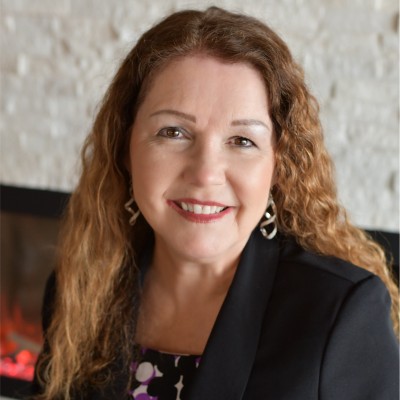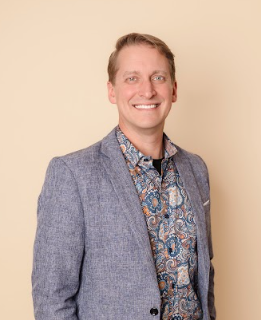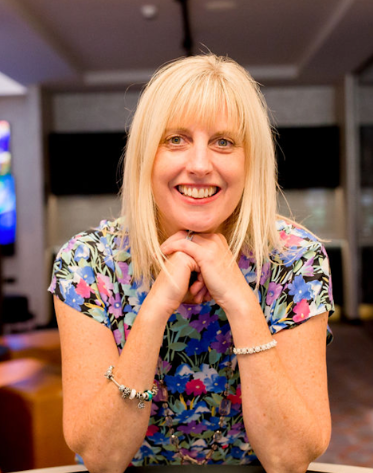When life took an unexpected turn, Debbie Compton chose love, resilience, and purpose. From leading in corporate America to becoming a full-time caregiver for her parents and mother-in-law, Debbie transformed her personal trials into a mission to empower caregivers worldwide. Through her books, resources, and advocacy, she helps others navigate caregiving with compassion, strength, and practical solutions. Humans of Fuzia is proud to share Debbie’s journey as part of our mission to uplift voices that inspire and impact our global community of 5M+ changemakers.
Q: Debbie, what inspired you to start your caregiving journey?
I was on track to retire from my corporate job when my family needed me most. My dad developed Parkinson’s, my mom was living with vascular dementia, and later, my mother-in-law faced Alzheimer’s. Each crisis reminded me that being away on business trips wasn’t sustainable. I made the decision to step away from corporate America and become a full-time caregiver. It was a drastic change, but it was the right one—and it became the foundation for everything I do today.
Q: What turning point led you to create resources for other caregivers?
When my mother-in-law was in hospice, the nurse saw the safety systems my husband and I had built at home and said, “Other caregivers could really use this information.” That was my wake-up call. I thought everyone else already knew what to do, but I realized many caregivers struggle in silence. That night I prayed, and the next morning I knew this was my new calling. I wrote my first book, Caregiving: How to Hold On While Letting Go, and launched The Purple Vine to provide caregivers with the support I once needed.
Q: You’ve written 13 books—what are some examples?
Each of my books was born from a real-life caregiving challenge. For example, when my mom was scolded for coloring a dog blue at her center, I created Color Me Calm, a judgment-free coloring book with mandalas—because in caregiving, there’s no right or wrong way. Another, Faith Lives Here, combines mandalas with Bible verses to bring peace and encouragement. Most recently, I led two international bestselling anthologies, The Caregiver’s Advocate, Volumes 1 and 2, gathering experts worldwide to share practical tools and resources.
Q: What challenges have you faced in building your platform?
The biggest challenge is visibility. People often don’t know what you do, even in your own community. I learned to focus on providing value first—sharing resources, writing books, and supporting caregivers—and trust that recognition and opportunities follow. I also said “yes” to new opportunities, like leading collaboration books, which opened doors I never imagined.
Q: As a woman leader, what are your thoughts on women in leadership today?
In corporate America, I broke into a position no woman had held before me. Women often feel they have to prove themselves more than men, and we’re not always comfortable promoting ourselves the way men do. My advice: don’t hold yourself back. Be brave, try new things, and don’t take business rejection personally. Passion and persistence shine through.
Q: What message would you give aspiring leaders and entrepreneurs?
Starting a business isn’t easy—it takes hard work and the willingness to master things outside your comfort zone. But every time you learn something new, you strengthen your brain and reduce your chances of dementia. So, in a way, entrepreneurship is great mental health training! Lead with heart, stay authentic, and don’t be afraid to repel those who aren’t a good fit—your people will find you.
Q: Can you share one stress-reduction technique caregivers (and leaders) can use?
My favorite is box breathing. Inhale through your nose for four seconds, hold for four, exhale through your mouth for four, and hold again for four. Repeat at least three times. It lowers stress, improves creativity, and clears your mind so you can respond better in any situation.
Q: Finally, how do you personally define success?
For me, success isn’t money—it’s freedom. I love my laptop lifestyle because I can work from anywhere, spend time with my grandchildren, and live life on my own terms. Success is having the flexibility to prioritize what truly matters.
“Caregiving teaches you that love and resilience can build solutions where none exist. When we share our stories, we help others carry the load a little easier.” — Debbie Compton
Connect with Debbie Compton: Debbie Compton | LinkedIn
Want to be featured? If you’d like to be part of the Humans of Fuzia series, email us at fuziatalent@fuzia.com









